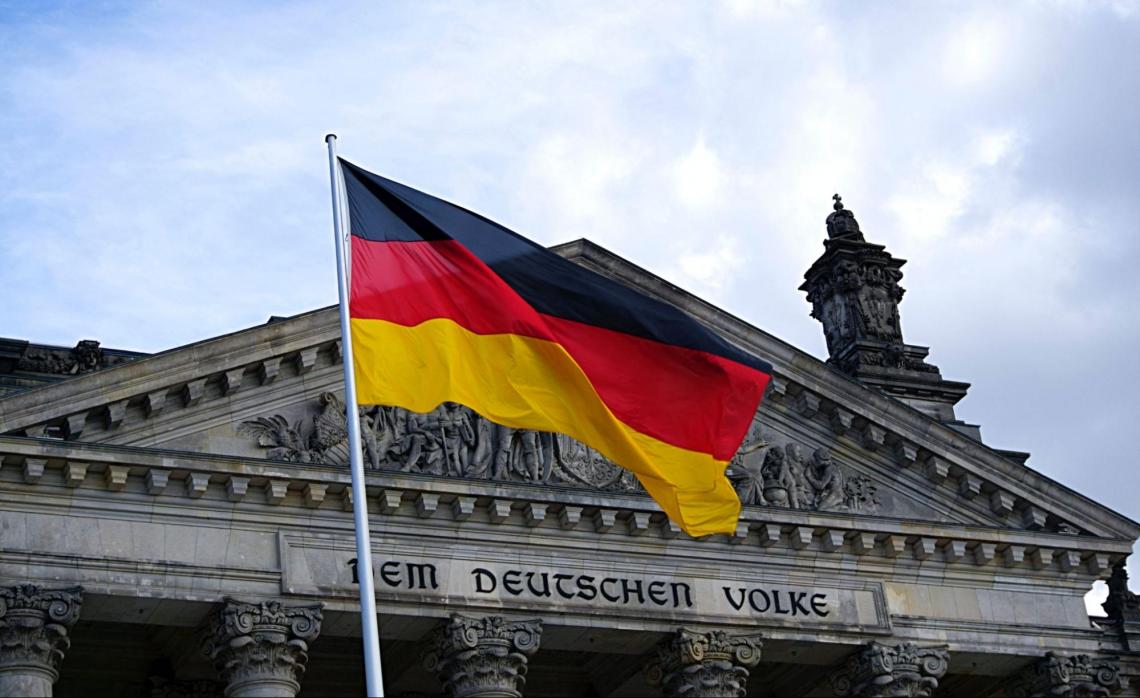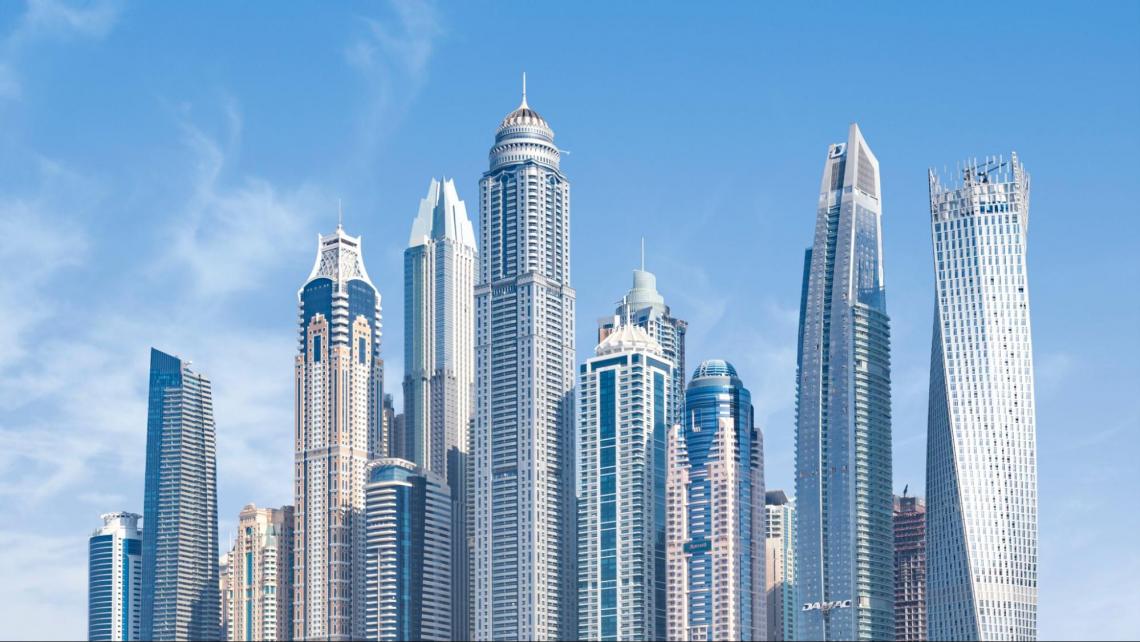Top Banks in Germany
More than 36,000 branches spread throughout Germany can trade securities and accept deposits and lending to customers because of the nation's universal banking system.
More than 36,000 branches spread throughout Germany can trade securities and accept deposits and lending to customers because of the nation's universal banking system.

There are no indications that the German economy is experiencing a credit crunch. Credit is available to domestic and international investors at market-determined interest rates with various credit instruments.
Due to the long-standing cross-shareholding arrangement between German banks and the industry and the high bank lending rate compared to equity financing, German banks have historically had a substantial impact on the industry.
Private banks, Publicly owned savings banks, and member-owned credit unions make up the three layers of Germany's contemporary banking system. Customers can choose from various services at all three types of banks.
The private banks with the most assets are those in the country. Private banks are notable for their ferocious rivalry with other banks in business and other private banks, which is a significant characteristic of the sector.
With 88% of German exports coming from private banks and about 75% of the banking industry's global network under their control, private banks are essential to Germany's export economy.
Sparkassen, Landesbanken, and DekaBank are public banks. The central asset manager for the financial group of savings banks is DekaBank.

In most cases, the local government serves as its owner and guarantor and is set up as a public legal company. Therefore, they only operate in regions owned by local government entities.
The Top Banks in Germany
There are savings banks in most German towns, and there are seven Landesbanken banks in the country, which serve as the principal central public banks in the regional states of Germany, including BerlinerSparkasse and Stadtsparkasse Munich.
The third pillar is made up of German cooperative banks. Members of cooperative banks, who typically serve as depositors and borrowers, own the institutions.
The cooperative bank, whose members comprise around half its customers, is obligated to serve them according to its legal structure. But in addition, the cooperative bank offers banking services to the general public.
Cooperative banks follow regional norms and have a regional focus, similar to savings banks. In addition, nearly a thousand autonomous partner organizations operate as a group.
Here is a brief description of each of these banks in detail:
1. Deutsche Bank
With operations in Europe, America, the Asia-Pacific region, and other emerging nations, Deutsche Bank, founded in 1870, is the largest bank in the country and one of the top banking and financial services firms worldwide.

Frankfurt serves as the corporate headquarters.
The following segments make up the operations of Deutsche Bank:
- Corporate Banking & Securities– This segment provides various financial products and is divided into corporate finance and market business divisions.
- Private & Business Clients – Private and Commercial Banking, Advisory Banking International, and Postbank are the three business segments that make up this segment.
- Global Transaction Banking– This category provides commercial banking products and services for corporate clients and financial institutions.
- Deutsche Asset & Wealth Management (Deutsche AWM) – An investment company in this segment provides consumers and institutions with access to investments in various asset classes.
- Non-Core Operations Unit – Alongside Deutsche Bank's core activities, this division functions as a separate division.
2. Commerzbank
With its headquarters in Frankfurt am Main, Commerzbank AG is a sizable German bank that functions as a universal bank. The bank had the second-largest balance sheet overall in Germany for the 2019 fiscal year.

The bank was established in Hamburg in 1870 and, has operations in more than 50 nations, finances nearly a third of German trade. It served 5 million clients in Central and Eastern Europe and 13 million users in Germany in 2017.
The several business segments through which it conducts its operations are:
- Private and small-enterprise customers,
- corporate clients,
- others and consolidation, and
- asset & capital recovery
The Private and Small-Business Customers categories include:
- online securities transactions,
- asset management, and
- universal bank services for private and small-business customers.
The corporate client's section offers credit products and financing options to large and mid-sized businesses and foreign and domestic financial institutions.
The staff, management, and support services of the business are included in the Others and Consolidation categories.
Commercial real estate, ship finance, and complicated financings from the public finance sectors are all handled under the asset and capital recovery section.
3. KFW Bankengruppe
A development bank controlled by the government with its headquarters in Frankfurt, KFW Bank Group was established in 1948.

A promotional bank is KFW. It provides consultancy services and finances investments, projects by German and European businesses, and economic and social projects in underdeveloped nations.
KFW obtains most of the funding for its operations from the global capital markets, where the KFW Banking Group borrows over 90% of its money, mainly through bonds backed by the federal government.
As a result, KFW was able to raise money under favorable conditions.
Due to its status as a public institution, KFW can issue loans at a lower interest rate than commercial banks because it is exempted from paying corporation taxes and does not have to compensate for shares offered by public shareholders.
Commercial banks are not allowed to rival KFW. However, KFW is permitted to make its business operations easier.
4. DZ Bank
DZ Bank AG coordinates around 800 cooperative banks and their 8,500 branch offices.
DZ Bank serves as a core institution and a corporate and investment bank within the German Cooperative Financial Group, one of Germany's major private-sector financial service organizations.

The DZ Bank Group is a holding company that provides services to 30 million customers of local cooperative banks.
German bank DZ Bank, with headquarters in Frankfurt, is a significant financial hub and economic region worldwide. Bank has various branches, subsidiaries, and representative offices. Frank Gehry designed the DZ Bank skyscraper in Berlin, situated at Pariser Platz 3.
Additionally, DZ Bank is home to one of the largest collections of modern art photography. At present, it includes over 6,000 pieces created by over 550 artists.
Retail banking, corporate banking, capital markets, and transaction banking are the four business sectors under which DZ Banking Group offers strategy and services to cooperative banks and their clients.
The cooperative financial network has a long and prosperous history of offering this combination of banking, insurance, home savings, and personal investment goods and services.
5. HypoVereinsbank (UniCredit Bank AG)
With offices throughout Germany, the United Kingdom, Italy, Luxembourg, the rest of Europe, Canada, the United States, and Asia, UniCredit Bank AG was established in 1998. It provides personal and business banking products and services.

Being a part of the Cash Group, it has its registered office in Munich.
It is qualified to issue Pfandbrief since it is a mortgage bank that also performs banking activities as a universal bank within the definition of the Mortgage Banking Act.
The bank serves 11 million customers through its 1,150 locations, which currently employ 12,000 people.
Primarily, the bank's three divisions provide client service:
- Commercial Banking: The Commercial Banking business area serves all German clients needing standardized or individualized service and guidance.
- Corporate and Investment Banking (CIB): Focuses on advising expertise, product and process quality, and value addition.
- Other/Consolidation business divisions: Global Banking Services (GBS), Group Corporate Center, and consolidation effects.
6. Landesbank Baden-Württemberg
A universal bank and the Landesbank for the various German Federal States is Landesbank Baden-Württemberg (LBBW). It is the largest state-backed Landesbank lender in Germany as of 2018.

As the central bank for savings banks in Saxony, Rhineland-Palatinate, and Baden-Württemberg, LBBW is a full-service commercial bank.
Five business segments comprise the company:
- corporate,
- retail clients,
- financial markets,
- credit investment portfolio/treasury, and
- corporate items.
The corporate section focuses on the primary markets, mainly Baden-Wurttemberg, Saxony, and Rhineland-Palatinate. In addition, it covers corporate clients and real estate finance business areas.
Activities involving private clients like retail, investment, private banking, and wealth management are included in the section for retail clients.
The financial markets division's sales activities with credit institutions, sovereign nations, insurance companies, and pension funds are part of its trading and sales operations.
The company's investments and asset management make up most of the credit investment portfolio and treasury. All other business operations are considered corporate items.
7. Bayerische Landesbank (BayernLB)
The 1884-founded BayernLB offers a comprehensive range of banking services to big businesses, SMEs, clients in the real estate industry, clients of financial institutions, clients in the asset management industry, and clients in the public sector throughout Europe US.

The bank has roughly 7,400 employees and is situated in Munich.
The bank has three main divisions:
1. Corporates & Markets:
The company conducts business with big German companies, a few select foreign businesses, and small and medium-sized business clients in Germany, Austria, and Switzerland.
2. Real Estate / Savings Banks & financial institutions:
In the real estate sector, BayernLB concentrates on financing and services for commercial real estate, with a particular emphasis on Germany and well-established, reliable international markets, including the US, UK, France, Italy, the Netherlands, and Poland.
3. DKB:
The primary focus of commercial activities is in Germany, while it has minor operations in Austria, Switzerland, and France.
DKB offers account packages, building finance, private loans, and investment products in its retail banking division as an online bank with a rapidly expanding customer base.
It is a corporate banking specialist for infrastructure and corporate clients, focusing primarily on clients in local government, social infrastructure, energy and utilities, residential real estate, and property management.
8. Norddeutshce Landesbank (Nord/LB)
Norddeutsche Landesbank Girozentrale (abbreviated NORD/LB) is one of Germany's most prominent commercial banks. It is a German Landesbank.

In 1765, NORD/LB was founded as Braunschweigische Staatsbank. On July 1st, 1970, the bank opened for business under its current name.
All of the significant financial and trade hubs, including London (since 1985), Singapore (since 2004), and New York City, are served by branch offices of NORD/LB (since 1991). In addition, NORD/LB is currently Germany's biggest bank for domestic and foreign bond offerings.
It is a public corporation with its head office in Hanover and branches in Braunschweig and Magdeburg. The federal states of Lower Saxony and Saxony-Anhalt own the bulk of the company. Regional Sparkassen holds a minority share of 35%.
NORD/LB is active in several business categories: Private and Commercial Customers, Corporate Customers & Markets, Energy and Infrastructure Customers, Ship and Aircraft Customers, and Real Estate Banking Customers.
9. Landesbank Hessen-Thüringen (Helaba)
Helaba or Landesbank Hessen-Thüringen, is a commercial bank with core markets in Hesse and Thuringia.

Helaba is a company that was legally established. The bank has offices in Berlin, Stuttgart, Munich, and Muenster, in addition to two headquarters in Frankfurt and Erfurt, where it employs about 6,300 people. It also maintains branches in Düsseldorf and Kassel.
Helaba operates globally through representative offices and branches in Paris, London, New York, Madrid, Moscow, Shanghai, and Singapore.
The bank serves the public sector, businesses, banks, and institutional investors as a state-owned bank that offers financial services. Additionally, it serves as a central clearing house for 40% of the savings banks in the country.
Furthermore, Helaba offers wholesale and retail banking services to corporate and private clients, institutional clients, central, regional, and local government departments, and businesses in the municipal sector.
10. NRW Bank
The German state of North Rhine-development Westphalia's bank is called NRW Bank. The NRW Bank was established in 2004 as a result of the restructuring of the Landesbank Nordrhein-Westfalen. The bank employs 1,428 people and has its headquarters in Düsseldorf.

Small and medium-sized businesses in North Rhine-Westphalia can turn to the firm for assistance with all financing-related issues, including promotional loans, equity financing, and comprehensive, provider-independent, and cost-free promotional guidance.
The NRW BANK supports initiatives and innovations that improve NRW's social and environmental sustainability and quicken digitalization by encouraging the required investments across all industries.
To help the state in North Rhine-Westphalia, the bank carries out its structural and economic policy objectives and offers loans, finance, and advice services. It focuses on public objectives instead of maximizing profits.
Economic Development, Social Housing, Infrastructure, Municipalities, and Public Finance comprise the four categories into which these promotional responsibilities are split.
Long maturities, fixed interest periods, and favorable terms are the clients' advantages at NRW.BANK.
FAQs

For their clients, German banks offer a variety of accounts. The following are the primary account kinds provided:
- Current account (Girokonto):
The country's most common type of bank account is a demand account.
In this country, these are employed for bill payment and salary collection. In addition, standard current accounts and specialized accounts, such as those for students and young people, are offered by several German banks.
- Savings account (Sparkonto):
They can be time deposits, which have higher interest rates, minimum deposits, defined timeframes in which money must remain, or instant access savings accounts, which allow immediate access to your money.
Generally, German citizens and foreign non-citizens can create savings accounts.
- Non-resident account:
German citizens are typically the only ones who can open standard current accounts.
To open an account in Germany, you typically need a permanent address. However, many German banks provide accounts for people who reside abroad in addition to their online-only and mobile-only offerings.
- Digital and mobile accounts:
The biggest banks in the country currently provide mobile account services and Internet banking through banking applications. Numerous banks in the country only operate online or via mobile devices.
- Offshore accounts:
Opening a foreign offshore bank account might be the most effective approach to handling your money for ex-pats living in Germany.
This is extremely useful for those who frequently move money between several countries, work overseas, or travel extensively.
Offshore accounts, kept outside the holder's home country, frequently have clear benefits, like access to a greater range of cross-border services and cheaper capital gains taxes.
In general, people view them as secure, dependable, and steady.
German citizens are typically the only ones who can open standard current accounts.
Typically, to open an account, you must reside permanently in Germany. However, many German banks that solely operate online or on mobile devices provide accounts to those who reside abroad.
If you want to open a bank account in Germany, you need to supply the following paperwork:
- Fill out an application form properly.
- Your current German residency permit and valid passport.
- Evidence of registration and/or address.
- Initial payment (the minimum depends on the bank of your choice)
- Proof of employment or money.
- If you're opening a student account, provide evidence of your status as a student.
- Credit rating SCHUFA (some, not all, banks require it).




or Want to Sign up with your social account?